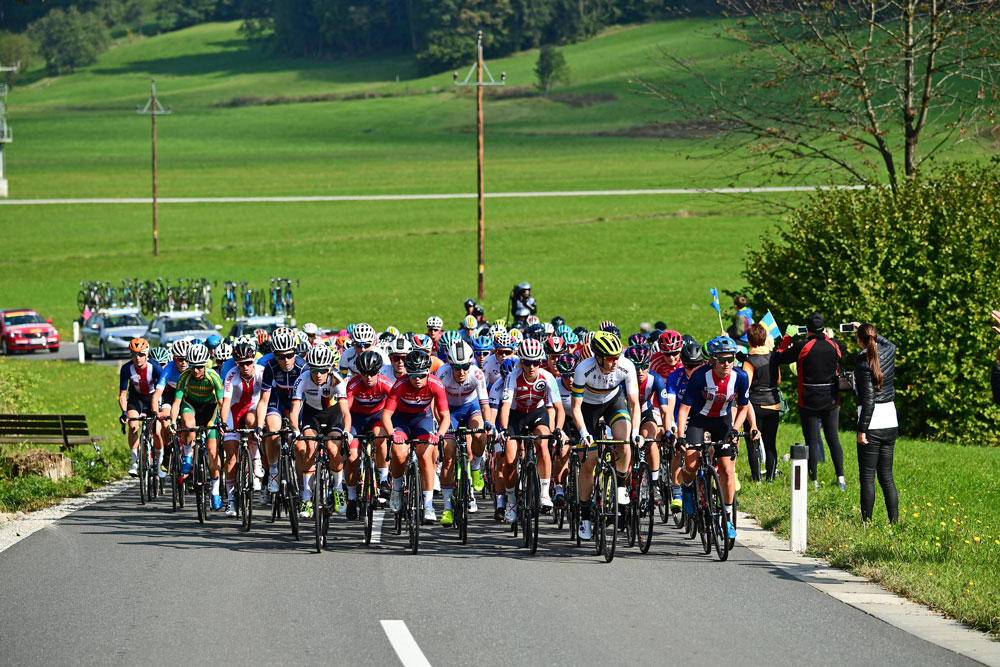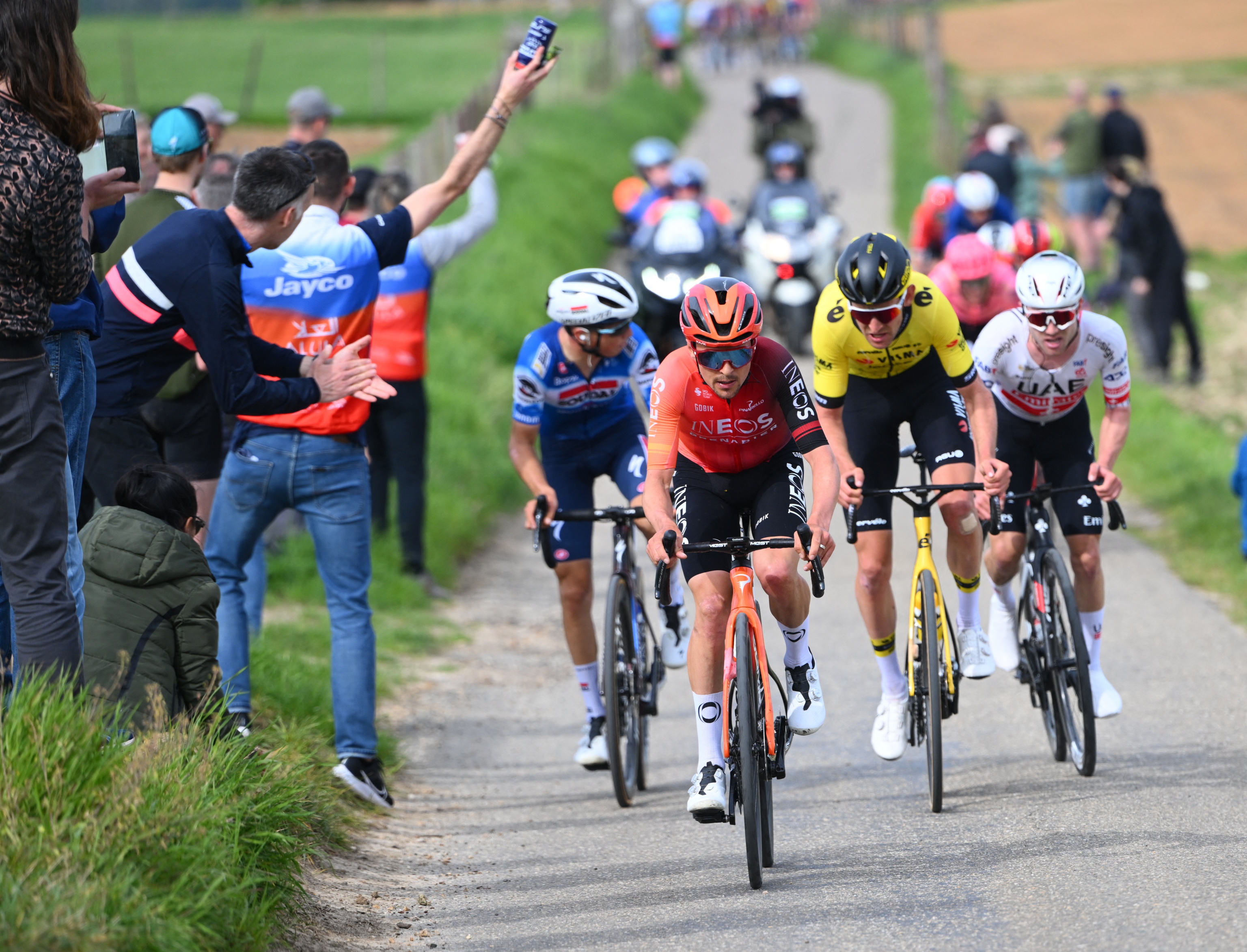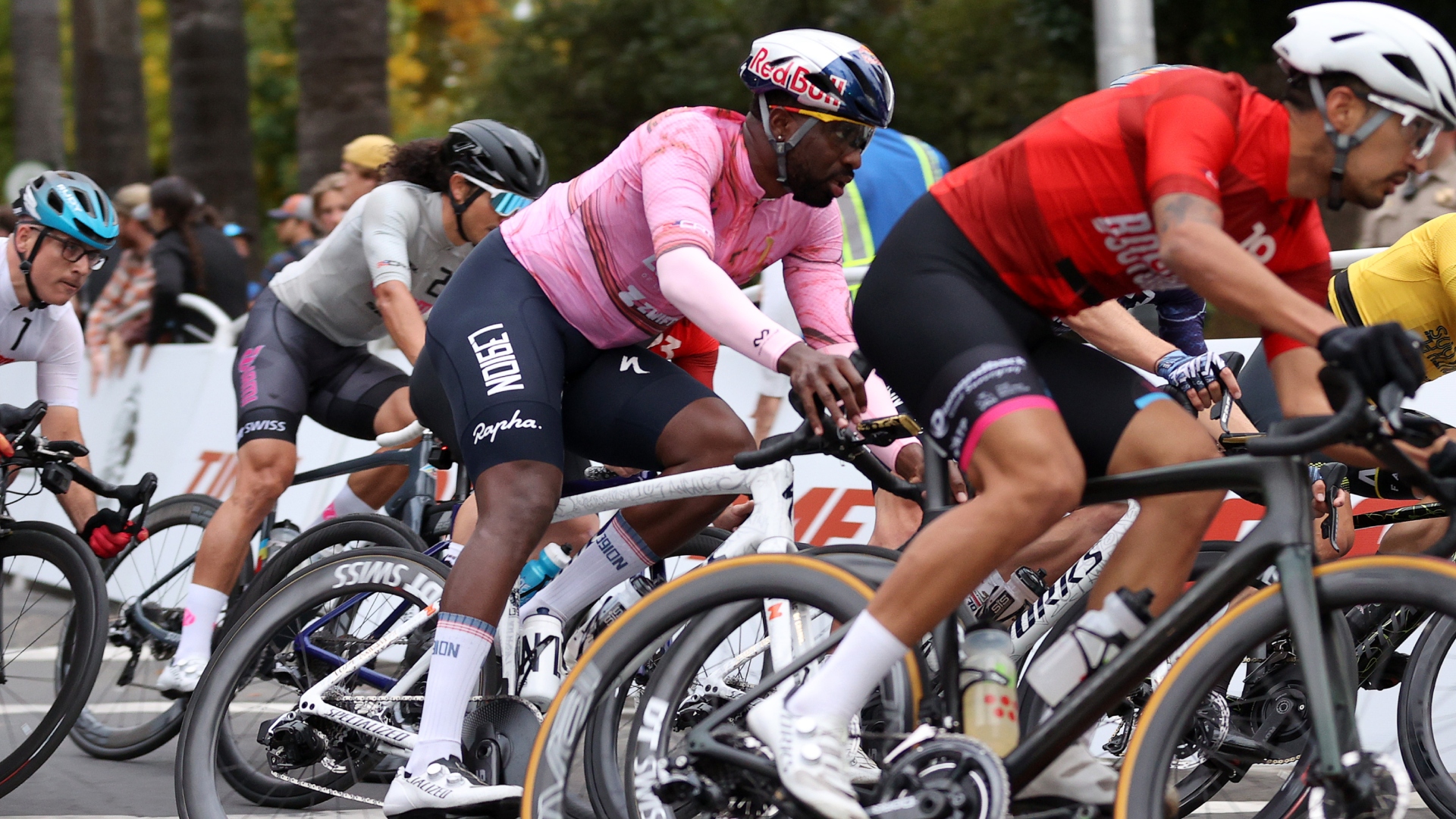Teams not consulted about minimum wage and tier structure in professional women's cycling
Minimum wage and two tier structure to be introduced in 2020

The women's peloton at the UCI Road World Championships 2018 in Innsubruck. Image: Sunada
The top teams in women's cycling were not consulted about the upcoming reforms, which will place further financial obligations on squads when they come into force in 2020, Cycling Weekly has learnt.
The reforms were announced at the World Championships in Innsbruck last week.
The two standout points, the creation of Women’s WorldTeams and a long awaited minimum wage - though latter though will only apply to those top tier teams, of which there will initially be five, rising to 15 in 2022 - have been widely welcomed.
However, managers have said that consultation was limited.
“I don't know who they have consulted, but for sure they have not spoken to me,” Canyon-SAM's manager Ronny Lauke told Cycling Weekly.
He added that at least one other team manager at one of the top five squads had also had no contact with the UCI on the matter.
“They know my email address and phone number, if somebody thinks the teams can be of any value with information they can supply.
Get The Leadout Newsletter
The latest race content, interviews, features, reviews and expert buying guides, direct to your inbox!
"I'm happy to help but if they don't call me the world doesn't stop either. I'm not really disappointed, it's just the way it is, [we just] deal with it."
The Women’s WorldTour has existed as a successful race series since 2016, though the races have been open to all UCI Women’s teams, of which there were 46 in 2018.
Currently all those teams are regulated in the same way as men’s Continental level outfits. The new structure will, according to the UCI's press release, make the Women’s WorldTour teams "comparable to the men’s UCI WorldTeams."
That will include a minimum wage, which Cycling Weekly understands will begin in 2020, increasing gradually to the equivalent of Pro Conti for the 2023 season. Figures published on the UCI website show the minimum wage for Pro Continental level men in 2020 will be €26,849 for new professionals, with more established riders earning €32,102.
Canyon-SRAM pay all their riders a ‘fair salary’ and Lauke says the new minimum wage should not affect his team financially. However other issues could affect the German registered squad.
“If it’s like the men's WorldTour then for sure there are more obligations in terms of infrastructure administration of a team,” continued Lauke. “That means more financial obligations which no one can value at the moment because we don't have the complete information, so when it becomes public I will be interested to read it.”
Iris Slappendel, one of the founders of the the recently created riders’ association, the Cyclists’ Alliance, has been party to the creation of the regulations and has welcomed them, especially the minimum wage.
“It is a good first line in the sand,” she told us. “It is positive that every rider in that team is paid a minimum salary, because there is a big disparity within the top teams, some have a big salary and some riders have almost no salary at all.”
As with men’s Continental teams, licences for UCI Women’s squads are held by national federations, but the reforms will move responsibility to the UCI, a positive development according to the former Dutch road champion.
“At Cyclists’ Alliance the people who come to us mostly have problems with teams that are not in the top five, but I think it is really good that the registration [of Women's WorldTeams] will be through the UCI because it's going to be easier to control what happens in teams and the finances, rider contracts and the insurance the team has to provide.”
Despite the lack of consultation Lauke believes change is needed.
“It looks like there is a plan to implement quality. The sport needs a new structure and I think quality is important and you need to make some hard decisions in order to implement that.
“We have 46 teams all operating as UCI Women's teams, and you are basically comparing club teams to WorldTour teams. It's good that they create a difference between those.”

Thank you for reading 20 articles this month* Join now for unlimited access
Enjoy your first month for just £1 / $1 / €1
*Read 5 free articles per month without a subscription

Join now for unlimited access
Try first month for just £1 / $1 / €1
Owen Rogers is an experienced journalist, covering professional cycling and specialising in women's road racing. He has followed races such as the Women's Tour and Giro d'Italia Donne, live-tweeting from Women's WorldTour events as well as providing race reports, interviews, analysis and news stories. He has also worked for race teams, to provide post race reports and communications.
-
 How to watch the Amstel Gold Race 2025: Everything you need to live stream the Dutch Classic
How to watch the Amstel Gold Race 2025: Everything you need to live stream the Dutch ClassicAll the broadcast information for the first of the Ardennes Classics on 20 April with Tom Pidcock – here's how to watch Amstel Gold Race online and on TV.
By Adam Becket
-
 Can you make a living as an American domestic road racer? A look inside the part-time professionalism of the American road peloton
Can you make a living as an American domestic road racer? A look inside the part-time professionalism of the American road pelotonAfter decades of booms and busts, the American road scene finds itself in a fragile place. We spoke to riders to understand the reality of chasing the dream on home soil
By Logan Jones-Wilkins